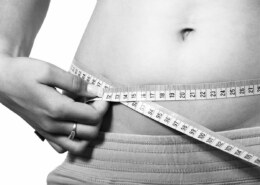What is the Difference Between Calories and Kilocalories?
A calorie is the amount of energy it takes to raise the temperature of a gram of water one degree Celsius. So, a kilocalorie is 1,000 calories.
In 1668, the scientist Michael Faraday was experimenting with substances that could be used as fuels when he burned a substance called coal in his famous experiment. He found that when he burned this substance, which produces heat instead of light, he produced heat and light in equal amounts. This discovery led to what we now know as “calories.”
We still use today’s definition of calories – they are measures of food energy measured in joules or kilojoules.
Kilocalories (kcals) are a unit of energy. There are 3,600 kcals in one kilogram of water.
The calories can be used to measure the amount of energy needed to do a specific task. For example, it takes 4 calories to lift a pound of weight in one second or 1,500 calories to walk a mile in one hour. A person needs 2,000 calories per day to sustain their body’s basic functions and lifestyle.
There are two types of units for food energy: kilocalories and joules. The joule is equivalent to the watt-second or watt-hour while the kilocalorie is equivalent to the watt-hour or calorie (1 kcal = 4.1868 joules).
What Is The Difference Between Calories and Kilocalo?
The difference between calories and kilocalo is that calorie is a unit of food energy while kilocalo is the unit of fuel.
If you want to convert kilograms to calories, it would be a little bit more complicated than just multiplying by four. You would multiply by 4.18 or 4.2 or 3.6 and then divide by 1000 in order to get the right number of calories you need
Kilocalo is the metric unit used by nutritionists and dietitians. A kilocalo is one thousand calories.
There is a difference between kilocalo and calorie because there are two different ways of measuring food energy in the body. One is through liver’s oxidation and the other one is by how many fuel molecules are burned each minute.
The difference between calories and kilocalo can be confusing for those who are not completely aware of the terms. The calories in kilocalo is a measure of heat energy released by food, where kilocalo is a unit of energy that is computed from the calorie.
What are the Different Ways to Calculate Calories in a Diet Plan?
In this article, we will discuss what the different ways to calculate calories in a diet plan. It’s important to do this because having an accurate estimation of how many calories you need is vital when planning your diet plan.
Calories are a unit of energy that allows the body to function properly and stay healthy. Different diets have different calorie counts, but some general rules apply for most diets.
There are several methods of calculating the number of calories in a diet plan, from the simplest method which just takes your weight and height into account to more complex methods that take into account your lifestyle such as exercise levels and even age.
One of the first things that comes to mind when thinking about a diet plan is how many calories are there in it. This is a crucial piece of information for dieters and for those who are trying to maintain their weight.
Calories are a measure of energy that is stored by the body. Different methods of calculating number of calories in a diet plan have been developed to help people with their weight loss and weight management goals. Here are the different ways to calculate the number of calories in a diet plan:
– The US Dietary Guidelines recommends multiplying the amount of fat (g) or protein (g) by 9, then dividing it by 4, which gives you 4 cal/g
– There is also an equation that calculates calories per 100 grams of food, which helps with specific foods like fruits and vegetables that have unique amounts per 100 grams
The ADA also recommends that individuals consume between 2,000-2,500 kcal per day, while the DGA says that people should eat less than 2,500 kcal per day.
There are other methods as well such as Body Mass Index (BMI) and basal metabolic rate.
How Many Calories Should I Burn To Lose Weight?
Many people struggle with weight loss. Weight-loss experts recommend burning 3,500 to 5,000 calories per week. This may seem like a lot of work, but it’s one small aspect of your overall fitness regimen that can help you lose weight.
Creating a calorie deficit is important for weight loss because the body will have to work harder in order to use the food that you are eating up. However, increasing your caloric expenditure may not help you lose weight if you are eating too many calories at night while sleeping and this can lead to lean muscle mass being depleted more quickly than fat mass.
A good way to start burning more calories is by incorporating high-intensity interval training into your routine which will increase the amount of calories that are burned during exercise as well as after exercising.



Leave an answer
You must login or register to add a new answer.